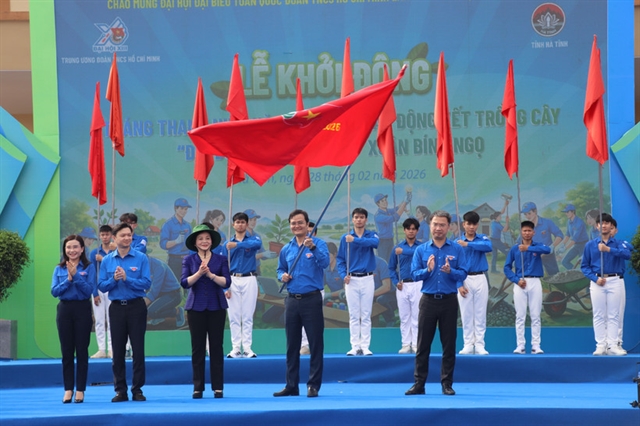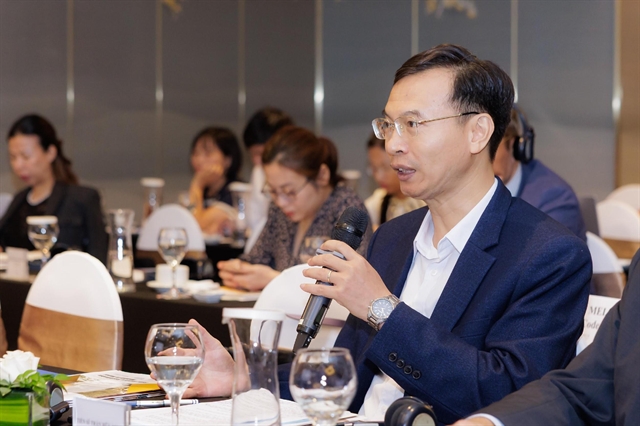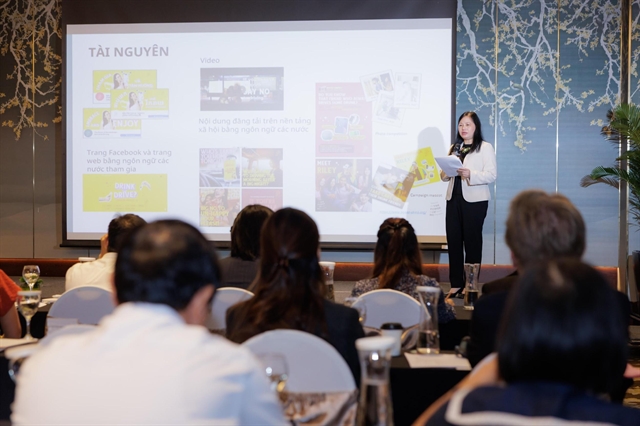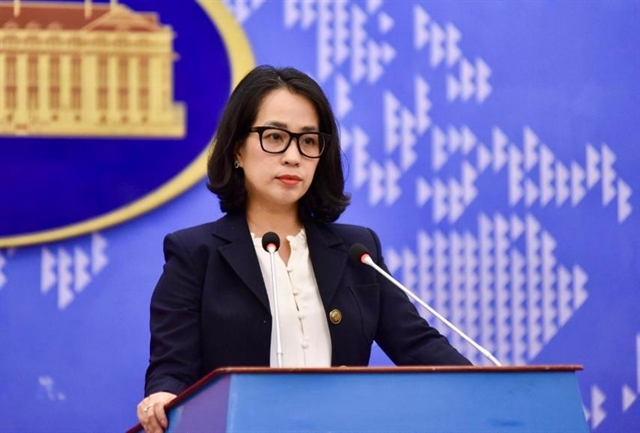 Society
Society

 |
| Trần Hữu Minh, chief of office of the National Traffic Safety Committee, speaks at the media roundtable “Embracing a Whole-of-Society Approach to Foster a Culture of Responsibility in Việt Nam” held in Hà Nội. — Photo Courtesy of the organisers |
HÀ NỘI — Responsible drinking is not merely about compliance – it is about self-awareness, understanding one’s limits, respecting others and making responsible choices, Dr. Trần Hữu Minh, chief of office of the National Traffic Safety Committee (NTSC), said at a recent media roundtable in Hà Nội.
The discussion, titled “Embracing a Whole-of-Society Approach to Foster a Culture of Responsibility in Việt Nam,” was held by the Asia Pacific International Spirits and Wines Alliance (APISWA).
“The more sectors we engage – from transport to youth organisations – the stronger our social resilience becomes in preventing harmful consumption,” Minh said.
In Việt Nam and across the Asia-Pacific, responsible drinking is evolving from simple awareness campaigns into a shared social movement.
Governments, communities and industry stakeholders are working together to make moderation part of modern values –emphasising mindfulness, balance, and responsibility.
Việt Nam has made important strides in tackling drunk driving and harmful alcohol consumption, but reshaping habits, particularly among young adults, remains the next challenge.
Regional collaboration
The urgency to address harmful drinking is clear, as the World Health Organisation (WHO) continues to highlight high rates of heavy episodic drinking in Việt Nam.
In response, the industry launched Asia Pacific Moderation Week in March 2025, the region’s first coordinated moderation campaign, uniting 18 trade associations across Asia-Pacific.
The initiative spotlighted key policy priorities, including introducing a legal purchase age of 18 in Cambodia; defining a “standard drink” as part of national drinking guidelines; and developing strategies to combat illicit alcohol across markets.
Campaign activities included educational programmes, the launch of the Responsible Drinking APAC website, and the release of a milestone report – The Road to 2030: A Partnership Approach to Reducing Harmful Alcohol Consumption – which tracks regional progress toward WHO’s target of a 20 per cent reduction in harmful drinking by 2030.
Creative campaigns are helping to reshape social norms.
“The Power of No,” a joint initiative by the Automobile Association Vietnam (AAV) and APISWA, has reached 43 million young adults across seven ASEAN countries, mobilising 28 partners to prevent drunk driving.
Nguyễn Thị Quý Linh, managing director of AAV, said: “We’ve seen that when young people feel ownership – when they see saying no to drink driving as protecting friends and family – they become powerful advocates for change.”
Việt Nam’s experience demonstrates that policy reform, public education and community initiatives must go hand in hand.
APISWA’s partnerships with NTSC, AAV and local experts help adapt regional expertise to local realities, making responsible drinking a lasting social norm.
 |
| Nguyễn Thị Quý Linh, managing director of the Automobile Association Vietnam, introduces “The Power of No” campaign to promote responsible drinking and prevent drink driving.” — Photo Courtesy of the organisers |
Olivier Fages, managing director of Pernod Ricard Việt Nam & Cambodia and APISWA’s representative in Việt Nam, said true progress comes from a partnership of equals, as each sector brings unique strengths – industry innovation, government authority and community trust.
“Together, we can make moderation an everyday value, not an occasional reminder. Together we can strengthen responsible drinking initiatives, enhance traffic safety, and support Việt Nam’s wider public health and community objectives.”
Toward a lasting culture of responsibility
Building a culture of responsible drinking requires consistency and shared ownership.
While digital tools and education play a vital role, experts say real change comes when responsibility becomes part of identity.
Dr. Nguyễn Minh Hoàng of Harvard Medical School’s Partnership for Health Advancement in Việt Nam, said: “When responsibility becomes part of identity, not obligation, behaviour change becomes sustainable.”
APISWA represents 11 leading international wine and spirits producers.
It works with governments and communities across the Asia-Pacific region to promote responsible drinking, fight illicit trade and support effective alcohol policies. — VNS




